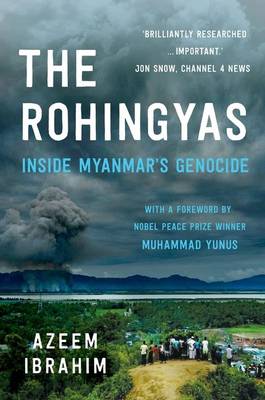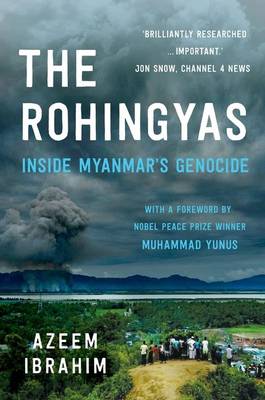
- Afhalen na 1 uur in een winkel met voorraad
- Gratis thuislevering in België vanaf € 30
- Ruim aanbod met 7 miljoen producten
- Afhalen na 1 uur in een winkel met voorraad
- Gratis thuislevering in België vanaf € 30
- Ruim aanbod met 7 miljoen producten
Zoeken
Omschrijving
According to the United Nations, Myanmar's Rohingyas are one of the most persecuted minorities in the world. Only now has the media turned its attention to their plight at the hands of a country led by Nobel Peace Prize laureate Aung San Suu Kyi. Yet the signs of this genocide have been visible for years.
For generations, this Muslim group has suffered routine discrimination, violence, arbitrary arrest and detention, extortion, and other abuses by the Buddhist majority. As horrifying massacres have unfolded in 2017, international human rights groups have accused the regime of complicity in an ethnic cleansing campaign against them. Authorities refuse to recognise the Rohingyas as one of Myanmar's 135 "national races," denying them citizenship rights in the country of their birth and severely restricting many aspects of ordinary life, from marriage to free movement.
In this updated edition, Azeem Ibrahim chronicles the events leading up to the current, final cleansing of the Rohingya population, and issues a clarion call to protect a vulnerable, little known Muslim minority. He makes a powerful appeal to use the lessons of the twentieth century to stop this genocide in the twenty-first.
For generations, this Muslim group has suffered routine discrimination, violence, arbitrary arrest and detention, extortion, and other abuses by the Buddhist majority. As horrifying massacres have unfolded in 2017, international human rights groups have accused the regime of complicity in an ethnic cleansing campaign against them. Authorities refuse to recognise the Rohingyas as one of Myanmar's 135 "national races," denying them citizenship rights in the country of their birth and severely restricting many aspects of ordinary life, from marriage to free movement.
In this updated edition, Azeem Ibrahim chronicles the events leading up to the current, final cleansing of the Rohingya population, and issues a clarion call to protect a vulnerable, little known Muslim minority. He makes a powerful appeal to use the lessons of the twentieth century to stop this genocide in the twenty-first.
Specificaties
Betrokkenen
- Auteur(s):
- Uitgeverij:
Inhoud
- Aantal bladzijden:
- 256
- Taal:
- Engels
Eigenschappen
- Productcode (EAN):
- 9781849049733
- Verschijningsdatum:
- 1/02/2018
- Uitvoering:
- Paperback
- Formaat:
- Trade paperback (VS)
- Afmetingen:
- 137 mm x 213 mm
- Gewicht:
- 317 g

Alleen bij Standaard Boekhandel
+ 69 punten op je klantenkaart van Standaard Boekhandel
Beoordelingen
We publiceren alleen reviews die voldoen aan de voorwaarden voor reviews. Bekijk onze voorwaarden voor reviews.








